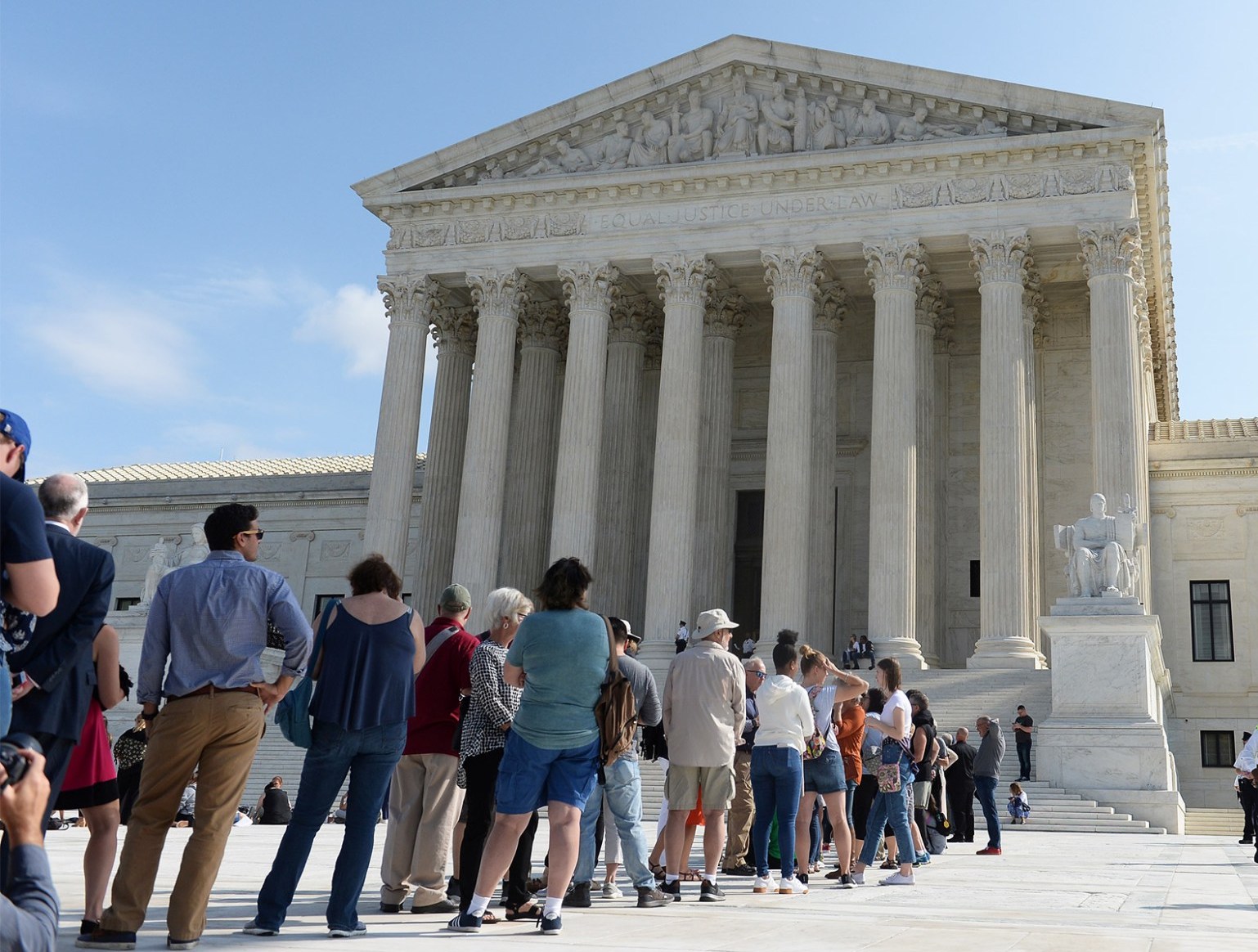A Year Later And Further To Go
Fix the Court reflects on one year since the major ProPublica investigation dropped
 One year after ProPublica ran its first groundbreaking Justice Thomas investigation, Fix the Court is looking back at the transformation in the culture around, and coverage of, the Supreme Court, heralding many of the changes — showing that public pressure works — while lamenting remaining shortcomings — starting with the unenforceable ethics code.
One year after ProPublica ran its first groundbreaking Justice Thomas investigation, Fix the Court is looking back at the transformation in the culture around, and coverage of, the Supreme Court, heralding many of the changes — showing that public pressure works — while lamenting remaining shortcomings — starting with the unenforceable ethics code.
The Supreme Court adopts an ethics code:
THE GOOD: There’s a code.
THE BAD: There’s no “enforcement,” which can mean a lot of things, but let’s focus on four ideas yet to be implemented. One, we need a SCOTUS complaints inbox. Two, we need someone to review the complaints and investigate them. Three, we need someone to write a report explaining to the public (and Congress) the nature and extent of the violations. Four, we need lawmakers to reduce SCOTUS’s non-security budget until they cooperate on the first three items.
Justices amend old disclosures:
THE GOOD: Three justices have done this: Thomas included his 2014 real estate deal with Harlan Crow in his last report, Chief Justice Roberts added his wife’s equity stake in her legal-recruiting firm to his 2021 report, and Justice Jackson filed amendments to each of her 10 reports to include several omissions.
THE BAD: Justice Thomas still has years’ worth of free flights, boat trips and other gifts, like his grand-nephew’s tuition and his RV loan, to report.
Justices change their recusal practices:
THE GOOD: Justices Kagan and Jackson offer explanations in the weekly orders list when they recuse, and Justice Sotomayor made a statement indicating she’s likely to recuse in future Penguin Random House petitions.
THE BAD: Seven justices are still not explaining their recusals, and we don’t know if the other book-writing justices will recuse when their publishers are parties in future SCOTUS litigation. We haven’t received responses when we’ve asked SCOTUS whether the justices are updating their recusal lists semiannually, as lower-court judges must do, or are using conflict-check software, like LCJs have since 2007.
The Judicial Conference acknowledges its Financial Disclosure Committee is reviewing the Justice Thomas referrals:
THE GOOD: As well they should.
THE BAD: It shouldn’t take 50-plus weeks to determine whether there’s “reasonable cause” (see 5 U.S.C. 13106(b)) to believe Thomas “willfully failed to file information required to be reported.” “Reasonable cause” is a low bar. Let’s go.
Changes are made to the financial disclosure rules:
THE GOOD: Gifts like flights on private jets must now be listed under “gifts” on disclosures and not under “reimbursements,” which was always odd.
THE BAD: Per a new rule, justices can undervalue the true cost of these perks by putting in their disclosure the cost of a first-class ticket and a commercial cruise under “value,” which is ridiculous, since a PJ and a yacht trip are far more expensive.
Congress is getting more into the act:
THE GOOD: Multiple SCOTUS ethics bills with enforcement mechanisms came out, as did a bipartisan SCOTUS ethics bill. Lawmakers are seeking to use the appropriations process to impact ethics policy. Subpoenas…might be issued? More bills are on the way.
THE BAD: The committees of jurisdiction have neither the staff nor budget in some cases, nor the interest in others, to fully delve into the broad range of ethics lapses at the Court.
The legal and legal ethics beats continue to expand:
THE GOOD: And it’s not just at SCOTUS — stories about the out-of-court lives of lower courts judges and even state court judges are becoming more prevalent.
THE BAD: We made some art to register our displeasure about some of the more dubious “SCOTUS ethics” stories.
The comings and goings of justices on the left and right are being examined:
THE GOOD: The ethics practices, or lack thereof, of each of the nine justices, and of a half dozen retired justices, have been reviewed by groups like ours and reporters across the country.
THE BAD: According to some people, if there are two sets of alleged ethics violations, you dare not mention the first set until the second set is found to be of equal size. Well, we’ve looked at everyone, and the first set is far, far greater.
Finally, some questions we couldn’t get answered by press time:
1. Remember Operation Higher Court? Will any justices attend the Supreme Court Historical Society’s 50th anniversary gala in June?
2. Is the Chertoff Group still getting paid by SCOTUS, and if so, what are they doing?
3. Where are the documents from our year-old FOIA to the State Department related to the justices’ overseas travel, 2018-2023 (documents that were scheduled to be delivered last month)?